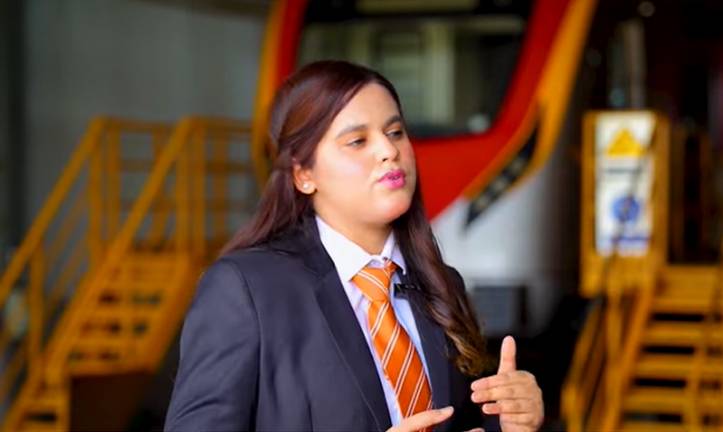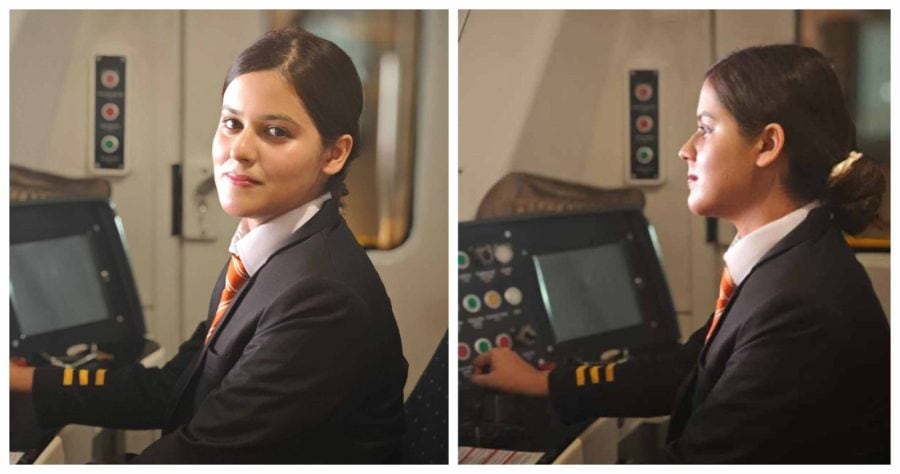Landmark Achievement
In a landmark achievement for women’s empowerment, Nida Saleh has become Pakistan’s first female train driver, taking the helm of Lahore’s Orange Line Metro Train. Her debut on July 29, 2025, marks a historic breakthrough in the male-dominated realm of public transportation and rail operations.
Rising Above Tradition: Her Inspiring Career Journey
A graduate of Transportation Engineering from UET Lahore, Nida was driven by a lifelong passion for trains. After joining the Orange Line team as an engineer, she confidently asked to be included in an upcoming batch of metro drivers. Initially met with skepticism—even from her own family—her resolve won out when authorities recognized her determination and competence.
Over three months, she underwent rigorous operational training, led by both Pakistani and Chinese instructors. Her curriculum included safety certification, technical protocols, and simulated driving sessions. Upon successfully completing the program, Nida took charge as a regular driver—fully responsible for operating the modern, high-tech metro carriages that serve thousands daily.
Breaking Stereotypes on the Rails
The Orange Line Metro is Pakistan’s first driver-operated rapid transit system, running 27 kilometers across Lahore from Ali Town to Dera Gujran, with trains leaving every five minutes between 6 AM and 10 PM. Nida’s role in this system disrupts entrenched gender norms in engineering, transport operations, and public service.
Punjab’s Chief Minister, Maryam Nawaz Sharif, applauded Nida’s appointment as a symbol of equal opportunity, calling her a “daughter of pride”. Sharif pledged continued support for creating professional pathways for women in technical fields, pledging that daughters are no less than any—an affirmation of evolving social policy and inclusivity.
Nida’s success resonates far beyond Lahore. Her story is galvanizing young women across Pakistan—many students, parents, and advocates now ask how girls can pursue similar careers in transport, STEM, and public service. Local authorities see her as an emblem of progress and hope for gender-balanced employment in sectors that once seemed out of reach.
Daily Duties Rooted in Responsibility
With her career now underway, Nida approaches each day with precision and professionalism. She begins with pre-ride vehicle servicing, reviews real-time safety checks, and adheres to standard operating procedures across the route. Her position requires technical skill along with attentiveness, composure under pressure, and passenger safety as a daily priority.
Nida emphasizes her role as more than a personal milestone: “Driving a train isn’t easy, but it’s not impossible either—it’s a job of complete responsibility,” she shared. She views her platform as a signal: “When people see me driving, they inquire about opportunities for their daughters.… That inspires others to join.”


What’s Next for Women in Public Transport?
As Nida Saleh continues her service on the Orange Line, officials and observers anticipate more women entering roles traditionally held by men. Training programs and recruitment policies are expected to evolve to be more inclusive, while institutions like the Punjab Mass Transit Authority are under pressure to create safe, supportive environments for female professionals.
Other trailblazers—like co-pioneer Zahida Kazmi, Pakistan’s first female taxi driver—have already proved the value of women in transport roles. Nida’s entry into rail operations further shifts perceptions, amplifying the message that women belong across every sector.

Final Takeaway
Nida Saleh’s ascent to train driver status is not just a technical achievement—it marks a turning point in Pakistan’s march toward gender equality. Her breakthrough signals broader change: professional inclusion, role modeling, and a new era of expanded opportunity for Pakistani women in challenging and impactful fields.


